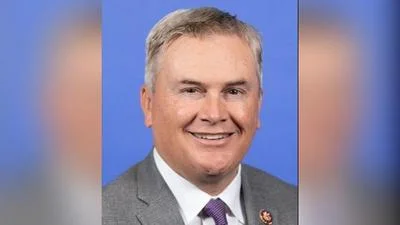Washington, D.C. -Today, Rep. Elijah E. Cummings, the Chairman of the House Committee on Oversight and Reform, and Senator Elizabeth Warren (D-MA) introduced H.R. 2569, Comprehensive Addiction Resources Emergency (CARE) Act to provide the resources and the comprehensive framework to finally begin treating the opioid crisis like the critical public health emergency it is.
“Families across this nation-in red states, blue states, and purple states, in big cities, suburbs, and rural areas-are struggling with the devastating consequences of this generational crisis that claims 192 lives every single day," said Chairman Cummings. “I am proud to introduce the CARE Act with Senator Warren to finally get to the heart of this problem by providing stable and sustained funding for states and local communities to expand access to evidence-based treatment."
“The opioid and addiction crisis is a national emergency that touches all communities, regardless of location, average income, or racial makeup," said Senator Warren. “The federal government has waited far too long to address this crisis, which takes an average of 192 American lives every single day. It’s long past time to enact comprehensive legislation to make sure everyone who needs treatment for a substance abuse disorder is able to get it."
The costs of the opioid epidemic are staggering. President Trump’s Council of Economic Advisers estimates that the opioid crisis cost the nation more than $500 billion in 2015 alone. In addition, a new study in the Journal Medical Care estimates that the federal government lost $26 billion in tax revenue between 2000 and 2016 due to the opioid crisis.
The CARE Act would help communities across the country expand access to evidence-based treatment by providing $10 billion per year over ten years to fight this crisis, including:
o $4 billion to states, territories, and tribal governments, including $2 billion to states with the highest levels of overdoses, $1.6 billion through competitive grants, and $400 million for tribal grants;
o $2.7 billion to the hardest hit counties and cities, including $1.43 billion to counties and cities with the highest levels of overdoses, $1 billion through competitive grants, and $270 million for tribal grants;
o $1.7 billion for public health surveillance, biomedical research, and improved training for health professionals, including $700 million for the National Institutes of Health, $500 million for the Centers for Disease Control and Prevention and regional tribal epidemiology centers, and $500 million to train and provide technical assistance to professionals treating substance use disorders;
o $1.1 billion to support expanded and innovative service delivery, including $500 million for public and nonprofit entities, $500 million for projects of national significance that provide treatment, recovery, and harm reduction services, $50 million to help workers with substance use disorder maintain and gain employment, and $50 million to expand treatment provider capacity; and
o $500 million to expand access to overdose reversal drugs (Naloxone) and provide this life-saving medicine to states to distribute to first responders, public health departments, and the public.
Congress could fund this bill in a number of ways, including by rolling back just a fraction of the massive tax cuts recently granted to opioid manufacturers and other drug companies who played such a key role in creating this crisis.
The CARE Act is modeled directly on the bipartisan Ryan White Comprehensive AIDS Resources Emergency Act, which was enacted nearly 30 years ago to support federal investments and local decision-making to tackle the HIV/AIDS epidemic. During the 1980s and 1990s, deaths from HIV/AIDS grew rapidly, and the country’s medical system was ill-equipped to provide effective, evidence-based care. In 1990, Congress passed the Ryan White bill to provide significant new funding to help state and local governments combat the HIV/AIDS epidemic.
Eighty-eight House Members are co-sponsors of the CARE Act, including all 24 Democratic Members of the Oversight Committee.
More than 200 groups have endorsed the CARE Act, including the American Medical Association, the American Society of Addiction Medicine, the AFL-CIO, the National Association of Counties, the American Public Health Association, and the March of Dimes.
Tomorrow, Chairman Cummings will convene a hearing on the Trump Administration’s response to the opioid crisis. For two years, the Trump Administration had no drug control strategy-even though it was required by law to issue one in both 2017 and 2018. The Administration finally issued its drug control strategy in January 2019, but the Government Accountability Office testified that it does not comply with the law.




